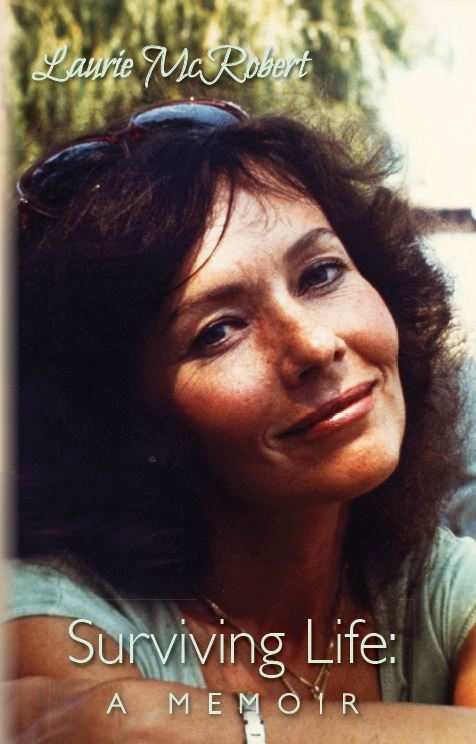Surviving Life: A Memoir
Philosophy guides McRobert’s interpretation of her and her family’s mental and physical conditions in this interesting, worthwhile memoir.
Laurie McRobert’s Surviving Life: A Memoir is a curious read, chronicling three generations of a dysfunctional family torn asunder by mental illness, manipulation, deceit, and inheritance squabbles. McRobert wrote the book to explain her complicated life and motives to her children and grandchildren after a vicious battle over her husband’s contested will and secret codicil left the author ostracized from her family. The book includes approximately fifty family photographs, as well as an imaginary conversation between the author and her late husband based on philosopher Emanuel Swedenborg’s visions of heaven.
Surviving Life: A Memoir reveals McRobert to be a complex woman. The indelible ink of childhood poverty stamped her life, as did vivid memories of growing up in a strong Ukrainian community in Canada. After various jobs, including a career in modeling, she earned a doctorate in philosophy of religion. That academic training influenced her interpretation of all life events, including her reaction to family members’ mental illnesses. Her husband dealt with bipolar disorder, as does one of her sons; other children experience depression, and her father had severe dementia—all biological conditions. Yet, McRobert frames these diseases using the language and philosophy of Taras Shevchenko, Martin Buber, and Emil Fackenheim.
In 1964, a catastrophic automobile accident left McRobert paralyzed from the waist down. Since then, she has suffered crippling back pain and endured multiple high-risk back surgeries. She also has survived aggressive breast cancer. These experiences would be enormously difficult for any person; for a thrill-seeking athlete like McRobert, they were devastating.
While an interesting read, some statements call into question the veracity of McRobert’s memories of her childhood. She says that at the age of ten months she could sing a song and claims having distinct memories of being hospitalized at twelve months—assertions that run counter to developmental psychology. Moreover, she acknowledges, “I had a great fantasy life. To me it was quite real.”
McRobert has published three previous books: Char Davies’s Immersive Virtual Art and the Essence of Spatiality (2007), Appearances: Genetic Mythology and Cosmic Instincts (2011), and Emil Fackenheim’s Quest: From Philosophy to Prophetic Theology (2013). The memoir is packed with typographical and grammatical errors, verb tense changes, and unclear text—for example, “A man in a sleigh driven horse drove me.”
Whether accurate history, cathartic expression, or memoir embellished by creative imagination or blurred by the passage of time and pain, Surviving Life: A Memoir is an interesting read.
Reviewed by
Nancy Walker
Disclosure: This article is not an endorsement, but a review. The publisher of this book provided free copies of the book and paid a small fee to have their book reviewed by a professional reviewer. Foreword Reviews and Clarion Reviews make no guarantee that the publisher will receive a positive review. Foreword Magazine, Inc. is disclosing this in accordance with the Federal Trade Commission’s 16 CFR, Part 255.

